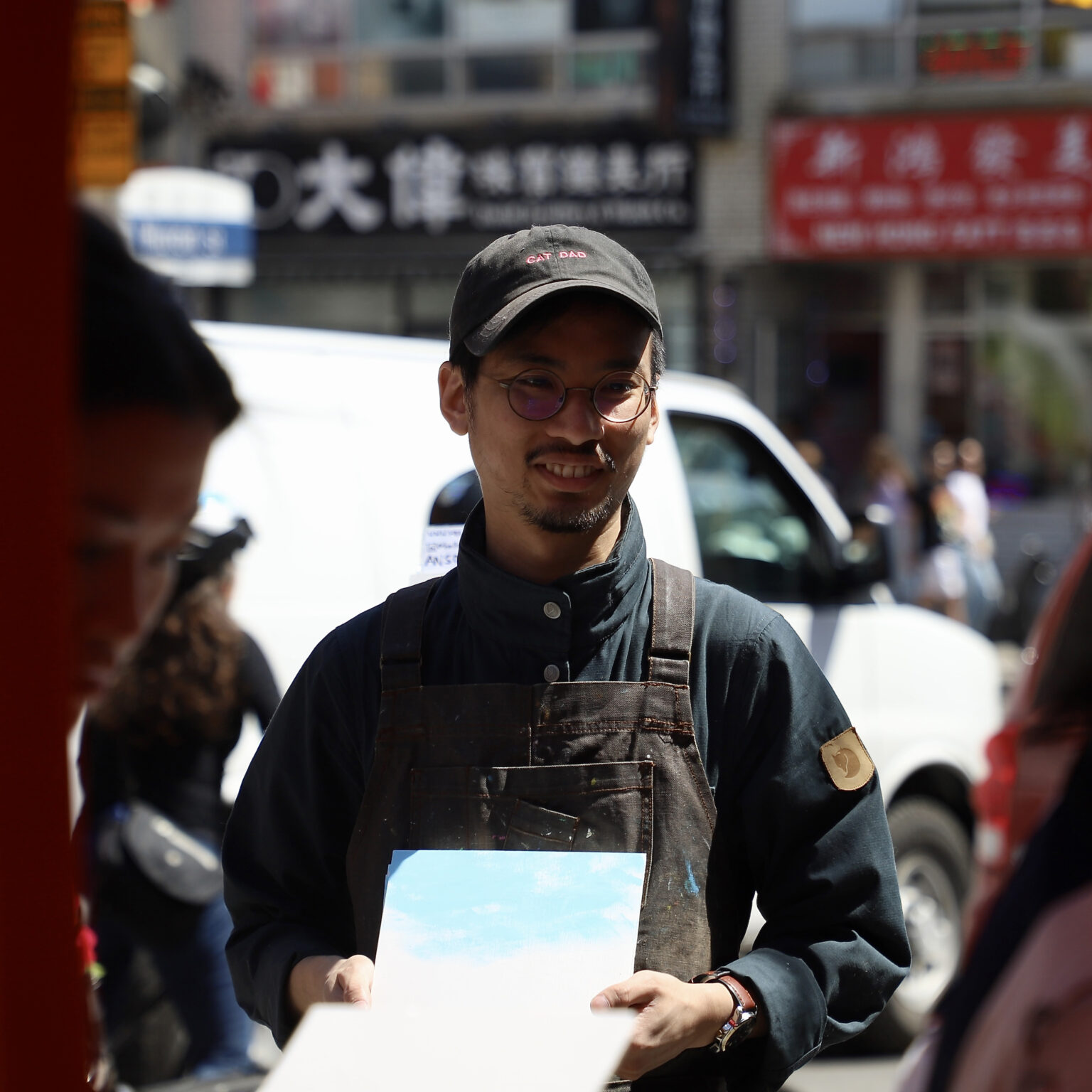Introducing P.O.V., a place where the Asian community can voice their views and perspectives on topics that matter most to them. Interested in contributing? Email us at info@representasianproject.com.
I’ve never experienced the stereotypical childhood my many Chinese-Canadian born peers had. I was given free rein and made my own choices when it came to which lessons I wanted to take or which skills I wanted to develop, and much of them happened to lie in the creative realm. I’d never been good at mathematics or sciences, and rejected Mandarin classes because it felt so foreign and daunting as an eight-year-old. But when it came to arts and music, I would always choose those classes without hesitation because there, I felt most like myself.
Thanks to the freedom I had in my childhood to explore my talents, I continuously pursued my creative endeavours and delved deeply into music. There, a passion for singing quickly turned into a desire to be part of the entertainment industry (it didn’t hurt that my mom used to sing competitively at a young age, either). My first singing competition was in high school, hosted by a local Chinese radio station. From then on, all subsequent competitions I entered were hosted by the Chinese community and broadcasters — mostly because my mother would refer me to these opportunities given that’s what she was exposed to and followed.
Now, I don’t read or write Chinese, and though I understand Cantonese perfectly, I can only catch a sentence here and there in Mandarin. I relied on English songs during my first couple of competitions, and although they were allowed, I began to feel like an outsider because a majority of the competitors around me sang in either Cantonese or (mostly) Mandarin. Somewhere down the line, due to feeling out of place and after receiving advice from outsiders, I started to learn how to sing Chinese pop songs. Soon, the once difficult task of having to translate the meaning of the song, asking my mother to read out the lyrics so I could write down the pronunciation for each character, putting the song on replay to hear how the words sounded musically, became second-nature for me in how I navigate through the local Chinese music scene.
But still, I was out of place. Although I can now go up on stage and sing a full song in a language I can’t read or write (which is an extremely rewarding experience for me), my accent simply can’t mask the fact that Chinese is not my native language. Then there’s, of course, the inevitable comments from the judges. In almost every competition I participate in, I become that singer who can’t read or write Chinese who is singing a Chinese song with an R&B feel to the voice (a style not typical in Chinese pop ballads). Perhaps it stems from sensitivity, but it began to feel as though I wasn’t a “true” Chinese person competing in competitions hosted for Chinese people.
“It began to feel as though I wasn’t a ‘true’ Chinese person competing in competitions hosted for Chinese people.”
There are two specific experiences that come to mind when I reflect back on not feeling “Chinese” enough during my time competing. One of them, although hosted by a Chinese foundation, had organizers and competitors who, like me, were either Canadian-born, or grew up in Canada at a young age. It was easier to converse as we grew up in similar cultural environments which made the competition a lot more fun and for once, I felt included.
However, a comment made by a judge made me feel like I didn’t belong. After I performed my version of “Somewhere Over the Rainbow,” a selection assigned to me, a Chinese judge said, “Alas, Chinese people just don’t have the breath control or support to sing such songs.”
Being a nervous 18-year-old with limited performing experience under my belt, I didn’t catch this comment, but my mother did, and told me afterwards. We were both angry and confused as to why a Chinese judge would deliberately make such a groundless stereotypical comment to another Chinese person and over a song I didn’t choose and had limited creative control over as I was working with a mellow, anticlimactic karaoke track. This instrumental version hardly gave room to tap into my powerhouse vocals even if I had any.
The second experience was about three years ago during an audition for the “Voice of China.” I made it to the third last round of the audition process and nervously performed a Mandarin song I prepared, and admittedly, it wasn’t my best performance. But again, the most memorable comment wasn’t about how mediocre I sang the song but was another jab at my “Chinese-ness” (again, my mother caught this comment since I was too nervous to comprehend what was happening). A judge asked, “How would you succeed in this competition if you can’t speak or understand the language?” Now that I look back to that experience, I must have looked like an overly-nervous singer who got through that long-winded process by some accident who can’t even speak the language. It made me feel embarrassed and disappointed, and defeated. Deep down, I thought to myself, “It can’t be helped… I guess he’s right.” But I also knew I didn’t want to apologize for it.

To top it off, because a majority of the competitors spoke Chinese, and some having grown up outside of Canada, our respective social upbringings were too different to vibe together. They’d exchange words with one another, mostly in Mandarin (I regret my eight-year old decision to quit Mandarin school everyday), and even if I struck up a conversation in English, it’d never last long. For years I probably saw the same faces here and there in multiple competitions but never built any relationships because of the cultural and language differences. It truly made these competitions feel lonely and scary.
Because I didn’t have deep attachments to songs I was singing and often felt that I had to dig up this ‘Chinese’ side of me and highlight that instead of being able to exist peacefully with my ‘Canadian’ side being present on stage, I began to slowly retreat from the competitions when I began my undergraduate studies in another city.
“I often felt that I had to dig up this ‘Chinese’ side of me and highlight that instead of being able to exist peacefully with my ‘Canadian’ side being present on stage.”
However, despite all of this, these experiences have taught me to begin embracing myself as a Canadian-Chinese. And the experiences weren’t all bad — one of my most empowering memories comes from a Chinese song writing contest hosted by a local Chinese radio station. I’d written a song in English, worked with a Chinese-Canadian producer who didn’t speak a lick of Chinese, and a Chinese lyricist who did her best to maintain the integrity of my lyrics to her Chinese ones. Our project was a melting pot where we brought our various levels of “Chinese-ness” to create a song worthy of a competition. My inability to write or read Chinese became my main selling point when it came to promoting my song. And most importantly, music became just about music, and because it was my song with both an English and Cantonese version, it finally felt like I “owned” my performance. Now, if I ever choose to participate in Chinese-hosted competitions, I would want everyone to know that although I’m well aware of my lack of efficiency in the language, I am Chinese, and I belong.
Even so, I’ve still been denied opportunities or deemed an unfit candidate because of my language barrier. Despite networking and trying my best to converse in the language, I know it will be rare for me to be considered for opportunities within the Chinese community if it requires the language. I fear that, if I can’t find a place to professionally grow in the Chinese community, how would I, a Chinese person, find a place in the otherwise Caucasian-dominated world of entertainment? I thought my community could be my safe place.
“If I can’t find a place to professionally grow in the Chinese community, how would I, a Chinese person, find a place in the otherwise Caucasian-dominated world of entertainment?”
As I’m writing this now, I am reflecting on how far representation for people of colour has come in the entertainment industry. More shows and movies are created to cast people of colour and Asian representation is coming to light with shows such as “Kim’s Convenience”, “Never Have I Ever”, and the soon-to-be released animated film, “Over the Moon.” As I continue embarking on my journey to land a creative career, now, as a content creator and editor (fingers crossed), I’ve realized a part of my choice to be behind the camera stems from my many years as a performer who felt out of place, even within her own cultural community. To me, I feel that being behind the camera means my looks and my language abilities are less of an importance to employers when navigating between non-Chinese or Chinese-person owned companies. The hope is, my portfolio and experience would be the focus.
I’m not entirely bitter about these experiences, however. By participating in all of those competitions, I learned immensely about myself, improved my Cantonese and Mandarin, and met some great people along the way who have inspired me, mentored me, and encouraged me to keep pursuing my creative endeavours. I am grateful to the Chinese community for all of the opportunities it has given me. Without them, I wouldn’t be where I am today.
My story here is to highlight my own unique experience as a Chinese-Canadian where I’ve felt familiar yet unfamiliar within my own community and the worry of whether or not I’d find my place outside of it. I don’t have fame of any kind, I’m still very new to the entertainment industry, and I’ve still many experiences yet to discover. But I hope my story as an average Canadian-born-Chinese is a relatable one for other Asian youth who have either been labelled too westernized to be Asian, or too Asian to be considered a real Canadian.
Born in Ontario, Canada, Katty Lau grew up exploring her love for creativity with the support of her family. She delved deep into music taking various instruments such as guitar, drums, and piano, but developed a passion for singing. From performing solos in high school concerts and recitals, she began competing at local talent shows before she gradually began auditioning for larger-scaled (but still local) competitions. Eventually, she had an opportunity to compete on the “Voice of Cantonese”, a televised singing competition by the Guangdong Television (GDTV) network in Guangzhou, China. Presently, she has finished both a Bachelor’s of Arts in Popular Music Studies and a Diploma in Film Production, and continues to pursue her dream of landing a creative career as a content creator and editor while maintaining her passion as a singer.
Like this post? Follow The RepresentASIAN Project on Instagram, TikTok, Twitter, YouTube and Facebook to keep updated on the latest content.











